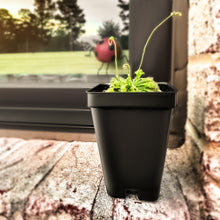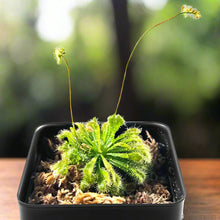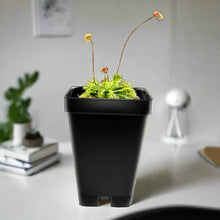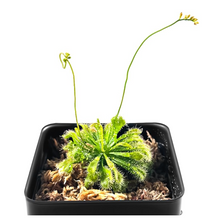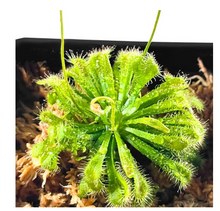
Bloomify is an online retailer that sells a variety of live indoor plants, including carnivorous plants and orchids. Our products are designed to be maintenance-free, making them a good option for people who don't have a lot of time to care for plants. We also offer a 100% growth guarantee on all of our products.
Sundews are carnivorous plants that trap insects with sticky droplets of sap on their leaves. They are found in a variety of habitats, including bogs, swamps, and sandy soils. The leaves of a sundew are typically 1-10 cm (0.4-4 in) long and are covered with small, hair-like tentacles. The tips of the tentacles are sticky, and they produce a sweet nectar that attracts insects. When an insect lands on a tentacle, it gets stuck to the sap. The tentacles then coil around the insect and smother it. The plant then secretes enzymes that digest the insect, and the nutrients are absorbed by the plant.
Sundew facts
• The name "sundew" comes from the fact that the sticky droplets on the leaves look like dewdrops in the sunlight.
• The sticky droplets on the leaves are actually produced by special cells called hydathodes.
• The hydathodes produce a sap that contains sugar and minerals.
• The sugar attracts insects, and the minerals help to digest the insects.
• Sundews can grow in a variety of habitats, but they prefer moist, acidic soils.
• Sundews are an important part of the ecosystem, as they help to control the population of insects.
Sundews are carnivorous plants that trap insects with sticky droplets of sap on their leaves. They are found in a variety of habitats, including bogs, swamps, and sandy soils. The leaves of a sundew are typically 1-10 cm (0.4-4 in) long and are covered with small, hair-like tentacles. The tips of the tentacles are sticky, and they produce a sweet nectar that attracts insects. When an insect lands on a tentacle, it gets stuck to the sap. The tentacles then coil around the insect and smother it. The plant then secretes enzymes that digest the insect, and the nutrients are absorbed by the plant.
Sundew facts
• The name "sundew" comes from the fact that the sticky droplets on the leaves look like dewdrops in the sunlight.
• The sticky droplets on the leaves are actually produced by special cells called hydathodes.
• The hydathodes produce a sap that contains sugar and minerals.
• The sugar attracts insects, and the minerals help to digest the insects.
• Sundews can grow in a variety of habitats, but they prefer moist, acidic soils.
• Sundews are an important part of the ecosystem, as they help to control the population of insects.





